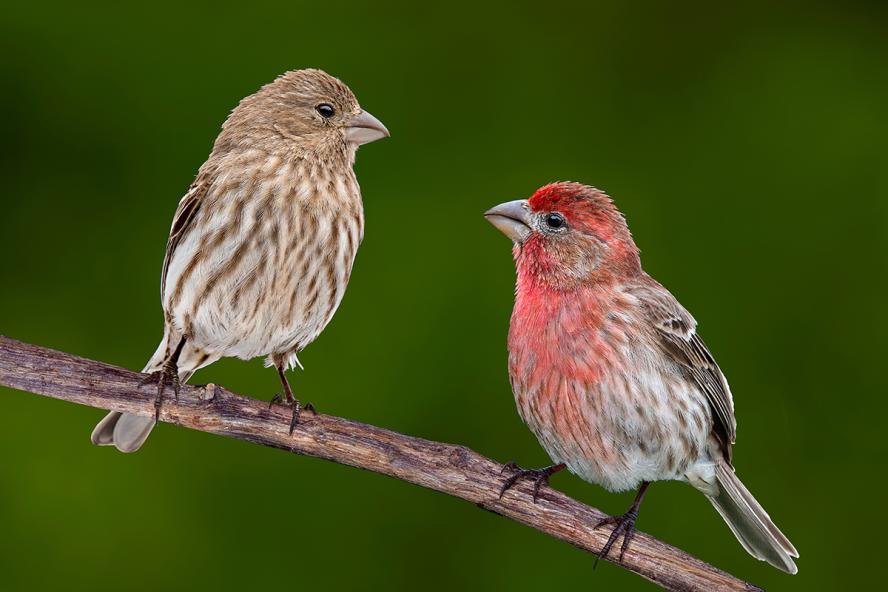-
About
- Leadership & Faculty
- News & Events
-
Admissions
-
Academics
- Graduate
- Advanced Clinical Training
- Continuing Education
- Academic Departments
- Academic Offices
- Simulation Experiences
-
Student Life
- Offices
-
Research
-
- Transformative Research
- Centers & Shared Resources
-
-
Hospitals & Clinics
- Emergency Care
- Hospital Services
-
Community Outreach
- Volunteer
What is Mycoplasma conjunctivitis?
Ask the Expert

Mycoplasma is a genus of bacteria that can cause illness in birds. The species that causes conjunctivitis in songbirds, particularly finches, is Mycoplasma gallisepticum.
What are the symptoms?
The symptoms of Mycoplasma conjunctivitis include:
- Swollen, crusted eyelids
- Impaired vision and disorientation
- Discharge from one or both eyes
- Reluctance or inability to fly due to impaired vision or secondary injuries; being unable to see due to swollen eyelids can cause birds to collide with windows or buildings and leave them susceptible to being caught by a predator, an outdoor cat, or a dog.
How does it spread?
This disease is transmitted through ocular or nasal discharge through physical contact with other birds or contact with contaminated surfaces such as bird feeders. The disease becomes more prevalent in the fall and winter when birds congregate around food sources, increasing the likelihood of transmission.
What can be done to mitigate the spread?
Routine cleaning of bird feeders, washing thoroughly with dish soap and water.
Wash thoroughly with dish soap and water, and Using a 9:1 bleach solution, soak bird feeders for at least 15 minutes, scrub all surfaces, and rinse thoroughly. Use gloves and wash your hands after cleaning the bird feeder.
What do I do if I find a bird showing signs of Mycoplasma conjunctivitis?
Please call the Tufts Wildlife Clinic at 508-839-7918 or a licensed wildlife rehabilitator near you to determine if the bird needs assistance.
Always use caution around sick birds and use personal protective equipment such as gloves and a face mask.
For further information on Tufts Wildlife Clinic and for our faculty and staff, please visit our website at wildlife.tufts.edu.
Department:
Tufts Wildlife Clinic